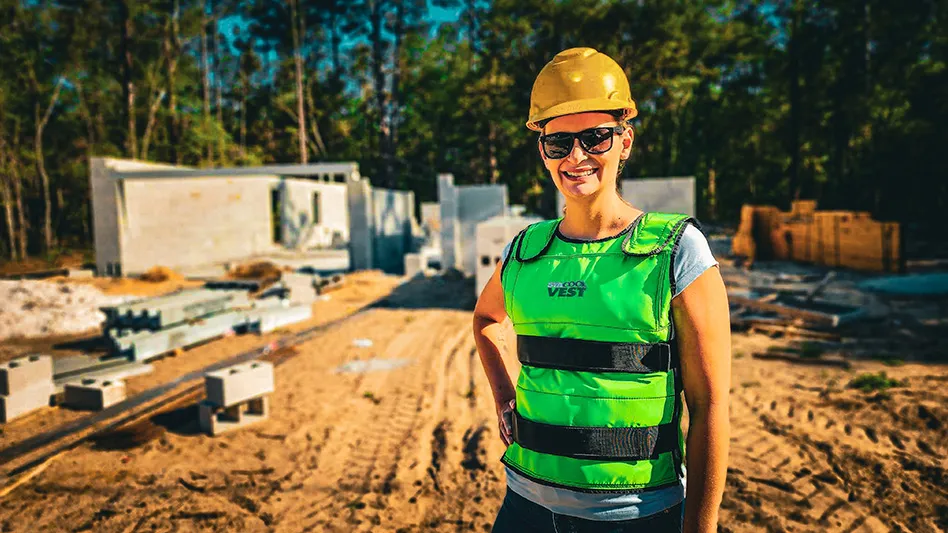Ah, springtime! The grass is greening up, the snowbirds are migrating North, you’re either gearing up or gearing down and the annual media attacks on our industry’s use of chemicals and water are about to begin. Yup, it’s as predictable as Brett Favre retiring again. Every March and April, groups that dislike us release "studies" about how awful we are and newspapers, magazines and blogs blithely report them as science. That, my friends, is the cold, hard reality that accompanies the warm, sunny spring. As I thought back on all of the big milestones in our topsy-turvy struggle with pesticide perceptions recently, I realized that most of the major milestones took place in the spring. For example: • The death of Lt. George Prior, the Naval officer whose very rare, fatal condition was subsequently publicly blamed on golf course fungicide exposure. • The one-sided 1990 U.S. Senate hearings (chaired by that dynamic duo of Harry Reid and Joe Lieberman) that examined pesticide use on lawns and golf courses. • The ban on golf course use of Diazinon because of questionable concerns that it presented a risk to waterfowl. • The release of the now infamous "University of Iowa Mortality Study" that, contrary to good intentions, suggested that superintendents had higher rates of certain cancers that had previously been linked to pesticides. • The late Paul Harvey’s still inexplicable attack on golf course chemicals. Our practices, according to Mr. Harvey, were killing songbirds and "greenskeepers," too. But enough with the trip down Memory Lane. Let’s take a look at the latest perceived challenge to our industry: the Democratic dominance in D.C. We’re now one year into the Obama administration and what was thought likely to be an activist-driven agenda in Congress. But, as I accurately suggested (for once) a year ago, golf and its political bedfellows in lawn care haven’t even been close to being on the federal regulators’ radar. They’re distracted by nagging little things like, oh, the crappy economy, two wars and a national security apparatus that can’t even keep two ditzy social climbers from wandering into the White House. In short, the feds aren’t our problem at the moment. The real action is – and has been for a decade – at the state and local levels. No lobbyist schmoozing inside the Beltway is going to stop drought restrictions, bans on "aesthetic" chemical use or small subversions of federal preemption laws. Only we, as participants in our communities, can. You’re probably sitting there thinking, "That’s someone else’s job." Well, sort of. Our profession is lucky have a handful of crazy, sleep-deprived, passionate heroes who manage to be both superintendents and effective advocates for our industry. These are the guys who at some point agreed to be their chapters’ government relations chairmen and took to it like a duck to water. And they’ve stuck with it long past any term on the board or any other artificial time limit. Why? Because they’re a special breed and they realize that it really matters and someone has to do it. At the certain peril of leaving a few tremendous folks out, let me offer props to a few of your brethren around the nation who do this unforgiving job: Peter McDonough, Virginia; Mark Esoda, Georgia; Jim Husting, California; Dean Graves, Maryland; Mark Jordan, Ohio; Greg Pheneger, Florida; John Madden, Colorado; Mickey Stachowski, New Jersey; and Robert Nielsen in New York. (OK, I know I’ve left a bunch of people out. Let me know who else should be on the list and we’ll print those tributes next month!) These folks spend an enormous amount of time paying attention to the fine print of the bills introduced in state legislatures. They visit officials to educate them about what we do and the benefits we provide. They organize and manage economic impact studies and other research to document our value to the community. And, most importantly, they keep you informed. They’re an invaluable and overlooked part of our business. Please buy them all drinks and/or kiss them on the lips at the next chapter meeting. Better yet, talk to them and ask how you can help. God knows they’d appreciate it. But, the mere existence of the heroes who regularly do the "government work" doesn’t let you off the hook. Every one of you reading this right now can help in five relatively painless little ways: 1. Know our positive environmental story and be able to tell it. 2. Get educated about the local political scene and get to know at least one council member who can give you a heads up if something problematic is coming down the pike. 3. Volunteer for a part-time local government committee, like a water board or public landscaping council. 4. Engage your owner or green chairman to make sure he understands what you face and how he could help. 5. Vote, dammit. Yes, we’re lucky to have heroes who do the lion’s share of the work defending our profession, but you can be a little heroic, too. Don’t think about it; just do it before you’re blind sided by something in your own backyard. GCI

Explore the February 2010 Issue
Check out more from this issue and find you next story to read.
Latest from Golf Course Industry
- Devising safer landings
- SiteOne adds Durentis to product offerings
- Resilia available for purchase in Hawaii
- What can $1 million do for expanding the industry workforce?
- Captivating short course debuts on Captiva Island
- Wonderful Women of Golf 35: Carol Turner
- The Andersons acquires Reed & Perrine Sales
- Excel Leadership Program awards six new graduates





